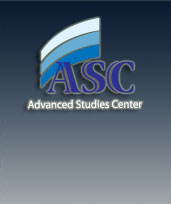When we consider how women’s work is conceptualized and measured, five distinct types of work can be distinguished: formal market work, informal market work, subsistence production, unpaid care work and volunteer work. Only formal market work is adequately measured by conventional data collection methods; the others all require the design of better methods of data collection or, at an even more basic level, new conceptual frameworks and definitions.[1]
Time use surveys are the main tool used to measure unpaid care work. Since they require the use of national statistically representative sample, they are normally carried out by state statistical agencies. No comprehensive time use survey has been conducted in Albania. Therefore, we decided to use the following participatory research approach which is the first to be implemented in Albania so far- focus groups discussions with women and men in 10 big municipalities of Albania, followed by the administration of a time use diary to the participants. Altogether we administered 225[2] time use diaries, (122 filled by women and 103 by men)] while there were 26 focus groups[3] featuring a total of around 260 participants. Alongside with the focus groups work, ASC conducted a secondary research and data collection at the national and local level, including review of policies, strategies and other documents related to unpaid care work.
Women and men participants in the focus groups were represented by different age groups, different economic activities and were usually married as we wanted to focus on this category in order to analyze the situation of married women and men. (The detailed profile of the participants in the focus groups is presented at Chapter IV.) The focus groups with women and men were followed by focus group discussions with local authorities and experts in order to have their opinion on the issue of unpaid care work, but also their recommendations. The methodology used was participatory, and includes comments given by a broad group of experts, local and central authorities. This allowed us to make more concrete and useful recommendations about needs and future actions.
As our primary method was the focus groups discussions, the number of the participants is quite low compared to a wider national time-use survey, which is the ideal methodology. Also, there was the risk of shifting out of the semi directive questionnaires of the focus groups because of other themes of discussions proposed by the participants. Nevertheless the combination of the focus group methodology with the administering of a simple time use diary give us some very good information that illustrates the patterns, causes and consequences of unpaid care work in Albania.
An initial draft of the research was shared with the local authorities and experts in order to incorporate their comments in the final report. This also allowed expanding the menu of recommendations for the support of the unpaid care of women.
[1] Progress of Worlds Women 2005: Women, Work and Poverty” UNIFEM, p. 23
[2] The number of TU diaries is smaller than the total number of participants because for reasons of time, or not willing, some of them did not succeeded to fill out the diary.
[3] This is the number of focus groups with participants in the research. The total number of focus groups including local authorities and experts is 50 and the total number of people participating in these focus groups is around 400.


 Supported by the United Nations Development Fund for Women (UNIFEM) under the auspices of its sub-regional Programme “Gender-Responsive Budgeting in South East Europe: Advancing Gender Equality and Democratic Governance through Increased Transparency and Accountability” . The Programme is implemented with funding from the Austrian Development Cooperation and Cooperation with Eastern Europe, and the Ministry for Foreign Affairs of Finland.
Supported by the United Nations Development Fund for Women (UNIFEM) under the auspices of its sub-regional Programme “Gender-Responsive Budgeting in South East Europe: Advancing Gender Equality and Democratic Governance through Increased Transparency and Accountability” . The Programme is implemented with funding from the Austrian Development Cooperation and Cooperation with Eastern Europe, and the Ministry for Foreign Affairs of Finland.







